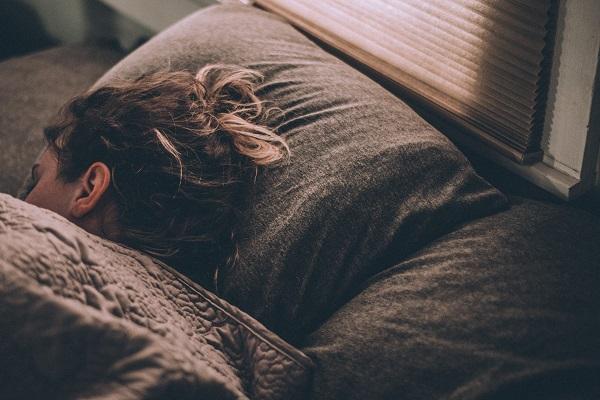What Are The Connections Between Endometriosis and Sleep?
March is Endometriosis Awareness Month.
The endometrium is the lining of the uterus. When there is tissue similar to the endometrial lining that is growing outside of the uterus, it is called endometriosis. Endometrial lesions can be on the ovaries, vaginal walls, bladder, colon, and more. Endometriosis affects up to 10% of the general population and can be quite debilitating as common symptoms include dysmenorrhea, dyspareunia (pain with sex), infertility, bloating, gastrointestinal symptoms, and chronic pelvic pain.
Unfortunately, with chronic pain conditions, such as endometriosis, sleep quality can be impaired. Sleep is essential for cognitive function, immune function, and overall health. The relationship between pain and sleep is a vicious cycle as pain can lead to poor sleep, but at the same time, poor sleep can increase sensitivity to pain and worsen depressive thoughts and thus experience a poorer quality of life. In fact, sleep disorders and changes in your melatonin level can have an effect on the reproductive system, not making it any easier to conceive.
Melatonin:
Melatonin is a hormone primarily released by the pineal gland and helps regulate the circadian rhythm. Melatonin acts as an important analgesic, sleep inducer, antioxidant, immunoregulatory, and anti-inflammatory agent. Due to its many special responsibilities, some researchers propose that improving melatonin can help reduce or stop the progression of endometriosis. There are quite a few studies showing that taking melatonin supplements not only improves sleep quality but also improves daily pain, dysmenorrhea, painful urination, painful defecation, and reduces the need to take analgesic medications. In addition, BDNF (brain-derived neurotrophic factor), a marker in inflammation, was reduced in those who were part of the melatonin supplement program.
Diet, Sleep and Endometriosis:
There are things that we can add to our diet that can help improve our melatonin levels. Often women with endometriosis are placed on anti-inflammatory diets or specific diets that they found were best through the elimination diet strategy. However, one study found that for women who incorporated a diet rich in dairy products and fruits, their sleep quality was better than those who did not integrate those foods. These foods contain tryptophan, which is converted to serotonin, then via various chemical processes, is converted into MLT or melatonin. There is also other research that shows kiwi, tart cherry juice and oysters have antioxidants, melatonin and zinc contents that can improve overall sleep quality. Ask your dietician or gastroenterologist how you can include some of those foods without aggravating your other digestive symptoms for a better night’s sleep.
Exercise, Sleep, and Endometriosis:
Another lifestyle factor that can help improve melatonin is physical activity! Regular exercise can enhance melatonin secretion and improve sleep quality in this way. In addition, endometriosis is also associated with insulin resistance; exercise can help mitigate this and help decrease abdominal pain/menstrual pain. One study showed that diet and physical activity both have a major impact on endometriosis risk. It is important, however, that there is such a thing as too much exercise, as it can elevate Sex Hormone Binding Globule (SHBG) levels creating a hormonal imbalance that can affect pelvic floor function. Walking, yoga, gentle pilates, swimming are all wonderful ways to get exercise for an overall dopamine boost as well as melatonin for improved sleep!
Another lifestyle factor that can help improve your endometriosis symptoms and increase good sleep and melatonin is physical activity!”
Conclusion:
It can be a vicious cycle with pain leading to poor sleep, and poor sleep leading to increased sensitivity and more pain. Talk with a specialist about ways to help improve your melatonin levels either through a supplementation program or through diet and exercise. If you are worried about starting an exercise program, please reach out to a pelvic floor physical therapist who understands endometriosis well and can help you get started with a safe, pain-free, enjoyable, and individualized exercise regimen (Bonus: your pelvic floor physical therapist can also work on any other endometriosis symptoms!). Give us a call or contact us through our website.
References:
Maggiore, Bizzarri N, Scala C, et al. Symptomatic endometriosis of the posterior cul-de-sac is associated with impaired sleep quality, excessive daytime sleepiness and insomnia: a case-control study. European J of Obsteterics & Gynecology and Reproductive Biology 2017; 209:39-43.
Youseflu S, Sadatmahalleh SJ, Roshanzadeh G, et al. Effects of endometriosis on sleep quality of women: does life style factor make a difference? BMC Women’s Health 2020;20:168, 1-7.
Schwertner A, Conceicao dos Santos CC, Costa GD, et al. Efficacy of melatonin in the treatment of endometriosis: A phase II, randomized, double-blind, placebo-controlled trial. PAIN 2013;154:874.881.

